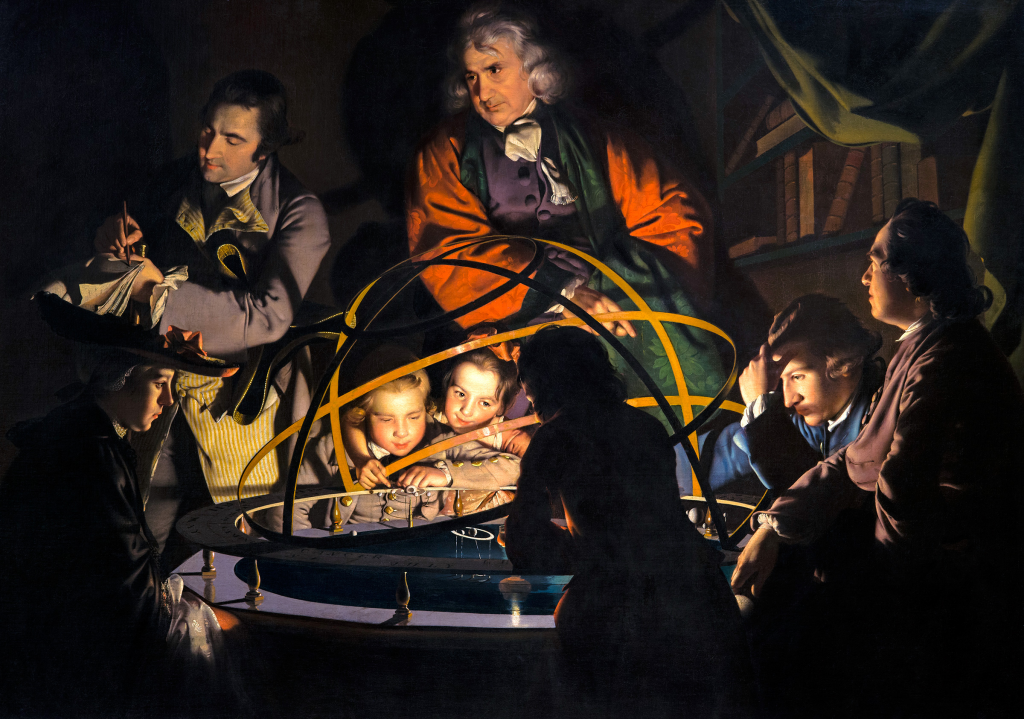When the young United States was finding its footing, it was like a child blessed by fate—born into a land of abundance, nurtured by a distant but lenient parent, and filled with an untamed energy that propelled it forward. Yet, like any child, it stumbled, full of passion but lacking direction. What is freedom? What is happiness? What rights should people have? The answers to these questions didn’t come naturally; they had to be learned. And learn they did—from the greatest intellectual revolution of the 18th century: the Enlightenment.

The Power of Reason: Breaking Free from Divine and Royal Authority
The Enlightenment, spanning from the early 1700s to the French Revolution and beyond, was a movement that placed reason above divine decree and questioned absolute monarchy. Thinkers like Spinoza, Descartes, Leibniz, and Newton laid the groundwork for a world driven by logic, science, and empirical observation. It was a time when humans, for the first time, seriously entertained the idea that they could understand and shape their world without relying on religious dogma or the whims of kings.
Hobbes vs. Locke: The Social Contract and the Birth of Liberalism
Two British thinkers, Thomas Hobbes and John Locke, were among the first to wrestle with the idea of government as a contract between rulers and the ruled. Hobbes, ever the pessimist, believed that people needed strong monarchs to prevent society from descending into chaos. Locke, however, saw things differently. To him, the purpose of government was to protect individual rights—especially property rights. He championed the idea that all men were born with “natural rights” to life, liberty, and property. His radical notion that government derives its power from the consent of the governed laid the foundation for modern democracy.
Locke’s influence on America cannot be overstated. His ideas were absorbed by the Founding Fathers, particularly Thomas Jefferson, who paraphrased Locke’s “natural rights” into the famous phrase from the Declaration of Independence: “Life, Liberty, and the pursuit of Happiness.”
Montesquieu’s Blueprint: The Art of Balancing Power
French philosopher Montesquieu took Locke’s ideas further by introducing the principle of the separation of powers. He argued that a government should be divided into legislative, executive, and judicial branches—each with distinct powers to prevent tyranny. This system, known as “checks and balances,” became a central pillar of the U.S. Constitution. The Founding Fathers, particularly James Madison, took Montesquieu’s ideas to heart, crafting a government structure that has remained remarkably stable for over two centuries.
Voltaire: The Champion of Free Speech and Religious Tolerance
Voltaire, another intellectual giant of the Enlightenment, had an acerbic wit and an unwavering commitment to free speech. Though the famous quote “I disapprove of what you say, but I will defend to the death your right to say it” was likely misattributed to him, it encapsulates his philosophy perfectly. Voltaire fought against religious dogmatism and championed tolerance, arguing that no government should impose a single religious belief on its people. His ideas heavily influenced the First Amendment of the U.S. Constitution, which guarantees freedom of speech and religion.
Rousseau: The Radical Philosopher Who Inspired Revolutions
Jean-Jacques Rousseau took Enlightenment thinking to its most radical conclusion. In his work The Social Contract, he argued that true sovereignty belongs to the people, not monarchs. His famous phrase, “Man is born free, but everywhere he is in chains,” captured the spirit of revolution that would ignite both the American and French revolutions. While Rousseau’s ideas leaned towards direct democracy, his influence on the concept of popular sovereignty helped shape the democratic ideals of the U.S. government.
The Lasting Impact: Enlightenment Ideals in Modern America
The Enlightenment wasn’t just an intellectual movement—it was a revolution in thinking that reshaped the world. Its ideas gave birth to the U.S. Constitution, established the principles of democracy, and laid the foundation for modern human rights. Even today, debates about free speech, government authority, and individual rights trace their roots back to the thinkers of this era.
In many ways, the Enlightenment is still unfolding. Every time a nation fights for democracy, every time people demand their rights, and every time a new scientific discovery changes our understanding of the world, the spirit of the Enlightenment lives on. It was the dawn of reason that lit the path for America’s journey—and continues to guide it even now.

No comments yet.